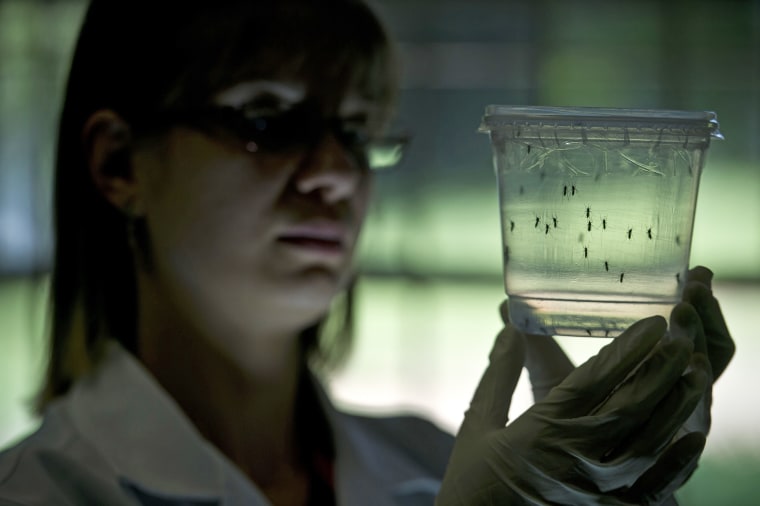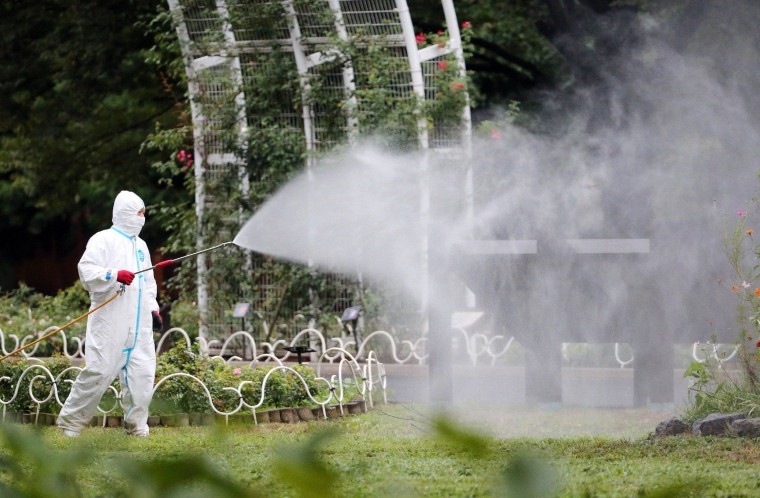While health officials try to figure out the true risks to people from the Zika virus spreading across Brazil, another team is fighting a known killer — dengue.
A team is setting up in Brazil to test an experimental vaccine against dengue, a cousin to Zika that’s spread by the same mosquitoes and can cause a ghastly and deadly hemorrhagic fever.
Dengue infects an estimated 400 million people around the world every year, mostly in Asia. The first infection usually isn’t bad. But dengue is an odd virus. It comes in four strains, and for reasons that scientists are still trying to understand, a second infection with a different strain can cause serious and often fatal illness.
It’s called "breakbone fever" because, like its distant cousin the chikungunya virus, it can cause terrible joint pain and pounding headaches. And doctors often cannot tell easily if someone has dengue or chikungunya.
But while chikungunya and yet another cousin, Zika, rarely cause serious illness, dengue does. High fevers, body aches and hemorrhagic complications can cause internal and external bleeding and shock.
Dengue hemorrhagic fever kills 20 percent of victims, although good medical care can lower death rates dramatically.
The World Health Organization estimates that 500,000 people are hospitalized with dengue every year. More than 1.5 million cases of dengue were reported in Brazil in 2015. It causes occasional cases in warmer U.S. states, most recently Hawaii.
So a dengue vaccine has been a priority. The National Institute of Allergy and Infectious Diseases (NIAID) has been working to develop one.

"Researchers in NIAID’s Laboratory of Infectious Diseases spent many years developing and testing dengue vaccine candidates designed to elicit antibodies against all four dengue virus serotypes," said NIAID director Dr. Tony Fauci.
"Because the impact of dengue fever in Brazil is especially large and the country has an excellent health infrastructure, it is an ideal location to test the vaccine candidate," Fauci said.
Doctors hope to get 17,000 healthy volunteers in Brazil to test the vaccine.
Because there's really no way to prevent dengue infection other than avoiding mosquitoes, the researchers can watch the volunteers for five years to see if those who are vaccinated are less likely to become infected.
Zika is in the headlines because it's just hit the Western Hemisphere for the first time and is spreading fast. Few people had heard of Zika, in part because it rarely causes any symptoms at all.
Its arrival in Brazil coincides with an increase in reported cases of microcephaly, a devastating birth defect that either kills babies or leaves them severely disabled, with underdeveloped heads and brains. There's growing evidence that Zika is involved but it's not entirely clear how or why this effect hasn't been seen in other Zika outbreaks.

